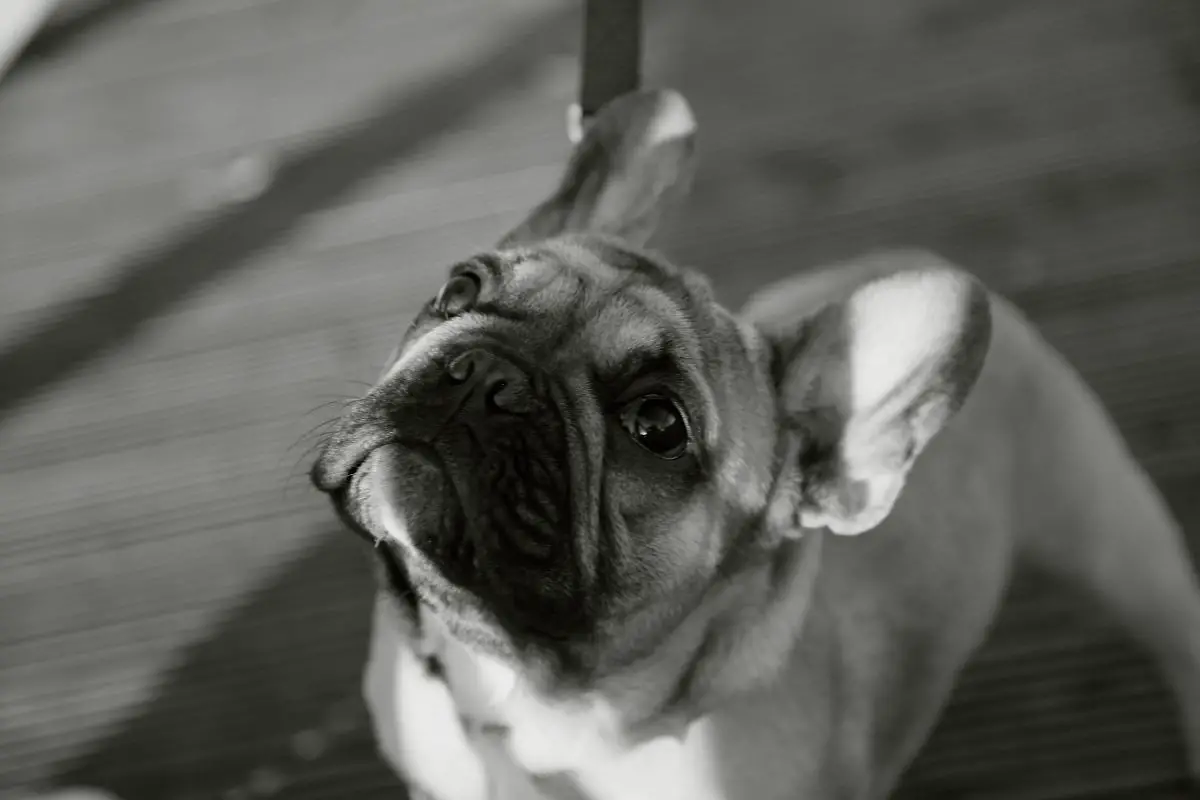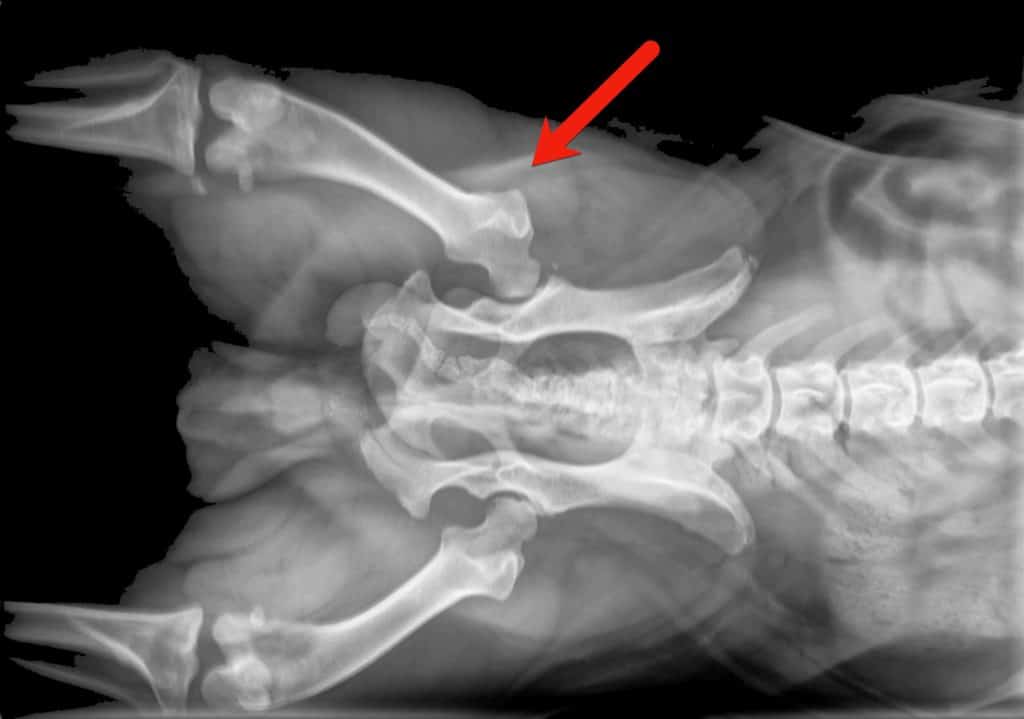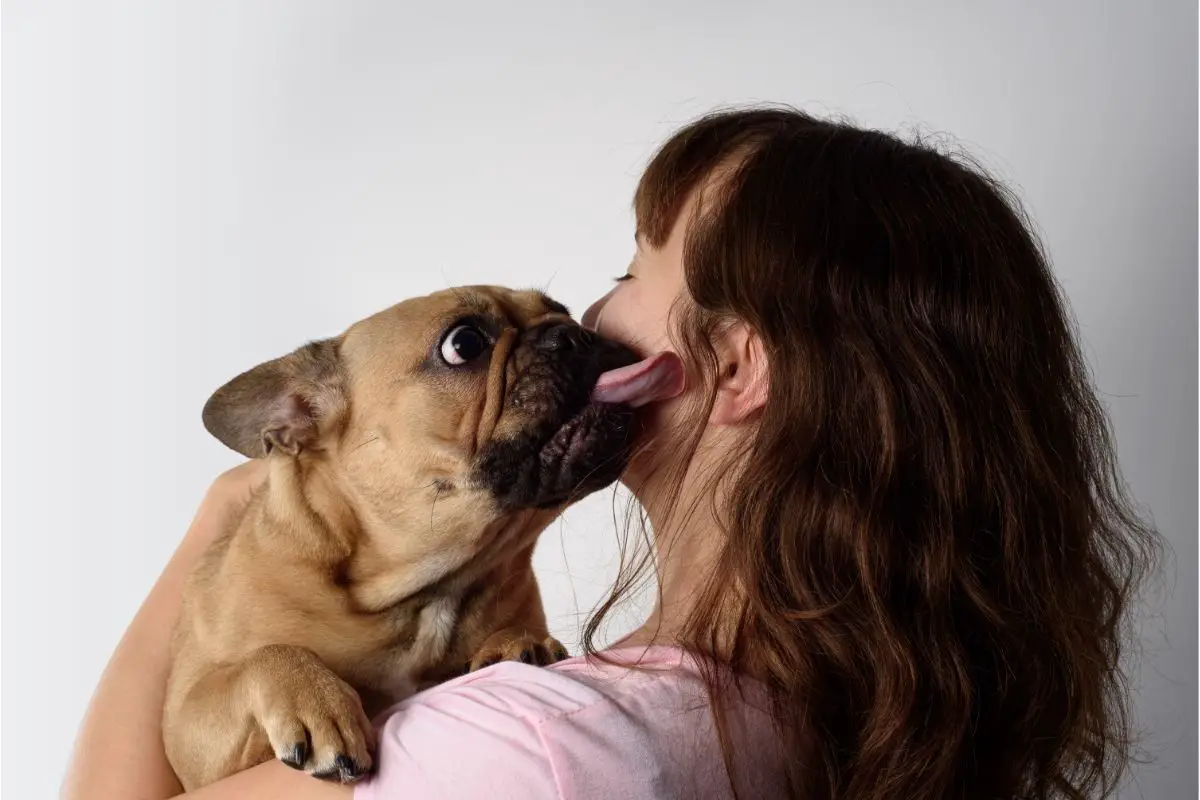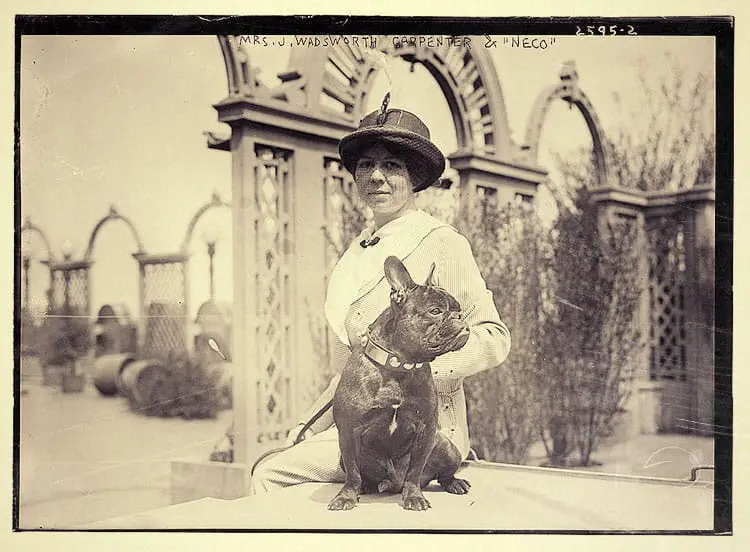The French Bulldog is a breed of dog that originated in the 19th century and was developed by crossing two breeds: the English Bulldog and the Poodle. The name “French” comes from the fact that these dogs were originally bred for use as pets in France.
Today, they are one of the most popular dog breeds in the world. They have been used as guide dogs, police dogs, military dogs, and even search-and-rescue dogs. They are also known for their intelligence, loyalty, and gentle nature.
However, because of this popularity, there has been a significant increase in the number of French Bulldogs being born each year. This has caused an increased demand for breeding stock, which has led to prices rising significantly over the past few years.
Why Are French Bulldogs Are So Expensive – The Reasons Why…

French Bulldog puppies can be very expensive to buy and maintain, but the breed is still one of the most popular in America. The reason for this is that they have a lot of health problems, which makes them more prone to genetic defects than other breeds. They also require a lot of care and attention from their owners. This article will explain why these dogs are so expensive to buy.
The French Bulldog is a breed of dog that has been around for centuries, but its popularity as a pet and show dog was not established until the late 1800s. The first French Bulldog Club in America was founded in 1894 by Dr. J.H. Smith and his wife, Mrs. Ethel Smith.
They were both members of the American Kennel Club (AKC) and they wanted to create an AKC club for their dogs. In 1900, the AKC recognized the French Bulldog as a separate breed from the Poodle. Since then, the French Bulldog has become one of the most popular breeds of dog in the world.
French Bulldogs have a unique appearance with their short legs and long bodies. Their heads are large and round. Their ears are small and triangular. Their coats can be any color except red or black. They come in many sizes, ranging from under 10 pounds to over 100 pounds.
There are also several types of French Bulldogs like the English Bulldog, Miniature Bulldog, Standard Bulldog, and Toy Bulldog. All of these breeds share similar characteristics such as being friendly, loyal, gentle, intelligent, playful, and affectionate. But each type of French Bulldog has its special qualities and traits.

Common Health Problems In French Bulldogs
There are some health problems that you should know about before getting your puppy.
These include hip dysplasia, which causes pain and stiffness in the hips; elbow dysplasia, which affects the elbows; eye disorders, including cataracts, glaucoma, and corneal dystrophy; heart disease; skin conditions such as allergies, dermatitis, and ear infections; and respiratory diseases such as pneumonia and tracheal collapse.
One of the main concerns is hip dysplasia. Hip dysplasia occurs when the ball joint of the femur becomes dislocated. This causes pain and discomfort.
Another common problem is allergies. Allergies occur when the body reacts negatively to something in its environment.
Common allergens include dust mites, pollen, pet dander, mold, and feathers. The best way to prevent these concerns is by feeding your French Bulldog a healthy diet. Make sure that the diet is balanced and that it contains enough calories.
Frenchies are prone to epilepsy, especially if they are not properly socialized when young. If your puppy has any of these health issues, he will need veterinary care right away. You should never wait until your puppy gets sick to get him checked out by a vet.
Another common health issue in French Bulldogs is bloat, which is caused by eating too much food at once. Bloating can lead to vomiting and diarrhea. It can happen when you feed your puppy table scraps or other foods that contain high-fat content.
This condition can be fatal if left untreated. The number of health problems that a Frenchie may suffer from means that they can be quite costly in terms of medical and veterinary bills.
Difficulty In Breeding French Bulldogs
One of the biggest reasons why French Bulldogs are so expensive is because they are difficult to breed. Because of this, there are only a few people who breed them. If you are a seriously considering getting a French Bulldog it is important to find a quality Frenchie breeder.
Most owners buy puppies instead of breeding them themselves. Also, there are fewer puppies available than other breeds of dogs.
For example, the average number of litter produced per year is between 3 and 5. That means that there are more puppies born than there are homes for them. Some people choose to sell their puppies after they grow up because they don’t want to deal with the responsibility of raising them. Others sell their puppies to others who are interested in owning a Frenchie.
The French Bulldog is a popular companion dog. People who own them love their gentle personalities and friendly nature. Because of this, the French Bulldog is very popular among people who want a pet but don’t want to deal with the responsibility of owning a larger dog.
However, if you decide to get a French Bulldog, you should understand that they are not easy to care for. You will have to devote a significant amount of time and money to take good care of your dog.
The French Bulldog Club Of America (FBDCA) is a nonprofit organization that helps promote the welfare of the French Bulldog. Its purpose is to provide information on the French Bulldog and help owners find qualified dog breeders. The FBDA works closely with the American Kennel Club (AKC).
The AKC is responsible for registering purebred dogs. The AKC also provides the guidelines for how to judge a dog show. The rules state that all dogs must be registered with the AKC and meet certain standards of good health and temperament. The AKC also sets the standards for judging a dog show. The AKC does not set the prices for dogs.
Instead, it sets the price range for each breed. The AKC also determines whether a dog is eligible to compete in shows. Only dogs that meet the requirements for a particular breed are allowed to participate in shows. The AKC also decides what type of classes are offered.
A class is an event where different types of dogs compete against one another. Dogs that have been bred to compete in shows usually belong to the Sporting Group.
Other groups include Utility, Non-Sporting, Hound, Working, Terrier, Toy, Herding, and Miscellaneous. French Bulldogs are part of the Non-Sporting group. They are considered a toy breed. This means that they are small dogs that were originally bred to perform tricks.
Today, however, most French Bulldogs are used for companionship rather than performing tricks.
Small Litters

Another reason that it can be expensive to buy a French Bulldog is that they tend to have a small litter. On average, a litter of French Bulldogs contains 2 to 4 puppies. However, this varies depending on the size of the mother and father. Smaller litters mean fewer puppies.
This means that there are fewer puppies available, hence why they are more expensive. The demand for French Bulldogs has increased over the years. As a result, many puppy mills have cropped up across the United States. These puppy mills produce large numbers of puppies at a low cost.
Unfortunately, these puppies often suffer from genetic disorders such as hip dysplasia. Puppies that come from puppy mills are sometimes sold without being spayed or neutered. If you are looking to get a puppy, make sure that the breeder is reputable.
Nutritional Demands Of The Breed
French Bulldogs require a lot of food. Their diet should consist of high protein foods like chicken, beef, lamb, fish, eggs, and dairy products. The diet must include vegetables and fruits. There are specific diets designed for the French Bulldog.
Some of them contain special ingredients to ensure proper growth and development. For example, some diets contain probiotics to improve digestion. Additionally, the diet should be balanced. This means that the ratio between carbohydrates, proteins, fats, vitamins, minerals, and other nutrients should be appropriate.
French Bulldog Post-Pregnancy Care
After giving birth, a female French Bulldog will need to recover before she returns to breeding. She needs time to rest and heal her body. During this period, she may gain weight. After about 8 weeks, she should start to lose the extra weight. At this point, she should begin to exercise again.
When she starts exercising, she should do short walks around the house. She should continue to walk until her hips are completely healed. Once her hips are healed, she can return to regular activity. Female Frenchies can produce up to two litters per year.
To avoid pregnancy, a bitch should wait 6 months after her last litter before getting pregnant again.
The Popularity Of French Bulldogs
In recent years, the popularity of the French Bulldog has grown tremendously. People love their friendly personalities and unique looks. Many people consider them to be cute and cuddly pets. They are very loyal and gentle. Because of this, they have become increasingly more expensive over time.
The popularity of this breed has made it possible for puppy mills to thrive. Unfortunately, many of these puppy mills sell puppies that are sick or unhealthy. They are often sold without having had any medical care. Even if they receive veterinary care, they may still be sold without having been spayed or neutered due to the demand.
Color Of Coat
The cost of a Frenchie depends on the color of its coat. Some colors are more popular than others. For example, black and white coats are considered to be more desirable. Black and tan-colored dogs are also in high demand. This is because they look similar to the American Pitbull Terrier.
A Frenchie with a tan coat tends to be smaller than one with a black coat. The color of a French Bulldog can range from solid colors to spotted patterns, which include tricolor, tripe, and merle.
French Bulldog Veterinary Care
The cost of veterinary care for French Bulldogs is generally higher than for most breeds. This is because they are prone to certain health problems. One of the main reasons that they are prone to health issues is because of their size. They tend to weigh 10 pounds or fewer when fully grown. This makes them susceptible to conditions such as hip dysplasia.
Because of their small size, they are also prone to respiratory diseases. These include kennel cough and tracheal collapse. They are also prone to eye disorders. These include cataracts and glaucoma. They may also suffer from allergies. Allergies are common among French Bulldogs.
If you notice an allergic reaction, you should take your dog to the vet immediately. You should never let your dog lick his paws. This could lead to bacterial infections.
French Bulldog Pet Insurance
If you own a Frenchie, you probably want to make sure that he receives proper veterinary care. However, you might not always be able to afford it. Fortunately, there are pet insurance plans available for your dog. These plans cover the costs associated with routine visits to the veterinarian.
They also help pay for emergency care. Your plan will depend on how much coverage you choose. Most plans offer some level of coverage. It is important to read the fine print on your policy. You may find out that there are limitations on what types of procedures you can get covered.
It is best to ask questions before purchasing a policy. You may even be able to save money by picking a cheaper plan.
Pros Of Owning A French Bulldog.

There are several benefits to owning a French Bulldog. First, they are extremely loyal. They are known to bond closely with their owners. Additionally, they are great companions. They are eager to please.
Their playful nature means that they enjoy playing games like tug-of-war and fetch. They are also good at learning tricks. They are smart enough to learn commands quickly. French Bulldogs are also easy to train.
They also respond well to training. They are patient with children, and they are usually also tolerant of other animals. They do not mind sharing space with other pets. Frenchies are incredibly affectionate. They love to cuddle up next to their owner.
They are very social animals. They enjoy spending time with people. They are also friendly towards strangers. They are happy to greet people who come over to visit. There are so many pros to owning one of these sweet little dogs!
Cons Of Owning French Bulldogs
Owning a French Bulldog comes with its share of cons too. They are extremely prone to health problems which can be costly. As we mentioned earlier, they are prone to hip dysplasia. Hip dysplasia causes pain in the joints. It also leads to lameness.
This condition can cause arthritis later in life. In addition, they are prone to breathing concerns. These include kennels cough and tracheal collapses. They are also prone to eye issues. These include cataract and glaucoma disorders. They may also have allergies. Allergies can be a difficulty for your Frenchie.
If you notice any signs of allergy, you should take him to the vet right away. He may need medication or treatment. Allergic reactions can be dangerous if left untreated.

French Bulldog Breed History
The history of the French Bulldog dates back to 18th century England. The breed was originally bred as a working dog. They were used for pulling carts and haul goods. They would work alongside horses. They were also used as guard dogs. They were used for protecting livestock from predators.
At this time, the French Bulldog was considered an ugly dog. People thought that they looked like a cross between a pig and a sheep. Because of their appearance, they were often referred to as “French Poodles”.
By the 19th century, the French Bulldog had become popular throughout Europe. During this period, the French Bulldog became more refined. Breeders started selecting only for traits that made them better suited to being a companion animal.
Over time, the French Bulldogs began to look less like pigs and more like miniature versions of the original English Bulldog.
Characteristics
The French Bulldog has been around since the 1800s. They are still around today. They are still very popular among pet lovers. They are small dogs, but they are big on personality. They weigh anywhere from 10 to 35 pounds. Most weigh between 20 and 25 pounds.
They stand about 23 inches tall. They have short legs and long bodies. They have large heads and round ears. They have a flat face and a broad muzzle. They have black noses and dark brown eyes. They have a double coat. They shed all year round.
French Bulldog Facts
Here are some interesting facts and dates back to 18th century England
- The average lifespan of a French Bulldog is approximately 10 years.
- The average weight of a healthy French Bulldog is between 20 and 25 pounds. A male French Bulldog weighs about twice as much as a female. Male dogs tend to weigh more than females due to their larger size.
- French Bulldogs are considered toy breeds. They are small and cute.
- French Bulldogs are often used as therapy dogs. Therapy dogs are trained to help those who suffer from mental illness, autism, post-traumatic stress disorder (PTSD), and anxiety.
- The first recorded use of the name “Bulldog” was in 16th century England. Bulldog was originally used to describe a type of mastiff.
- The French Bulldog originated in France.
- The American Kennel Club recognized the French Bulldog as an official breed in 1885.
Conclusion
Buying and owning a French Bulldog can be extremely expensive. Over the years, the demand for the breed has increased. Many factors contribute to the high price of these dogs.
Some people think that the French Bulldog is just another designer dog. Others believe that it is a rare breed. However, there are several other reasons why the price of a French Bulldog can go up.
If you want to buy a puppy or a new adult dog, you need to know what characteristics make a good pet. You should consider the temperament of your potential dog before buying one.
In addition to having a calm temperament, you should also consider how well the dog will fit into your home. It is important to find out if your new dog will get along with children and other pets.
French Bulldogs are known for being playful and friendly. They love attention and affection.




